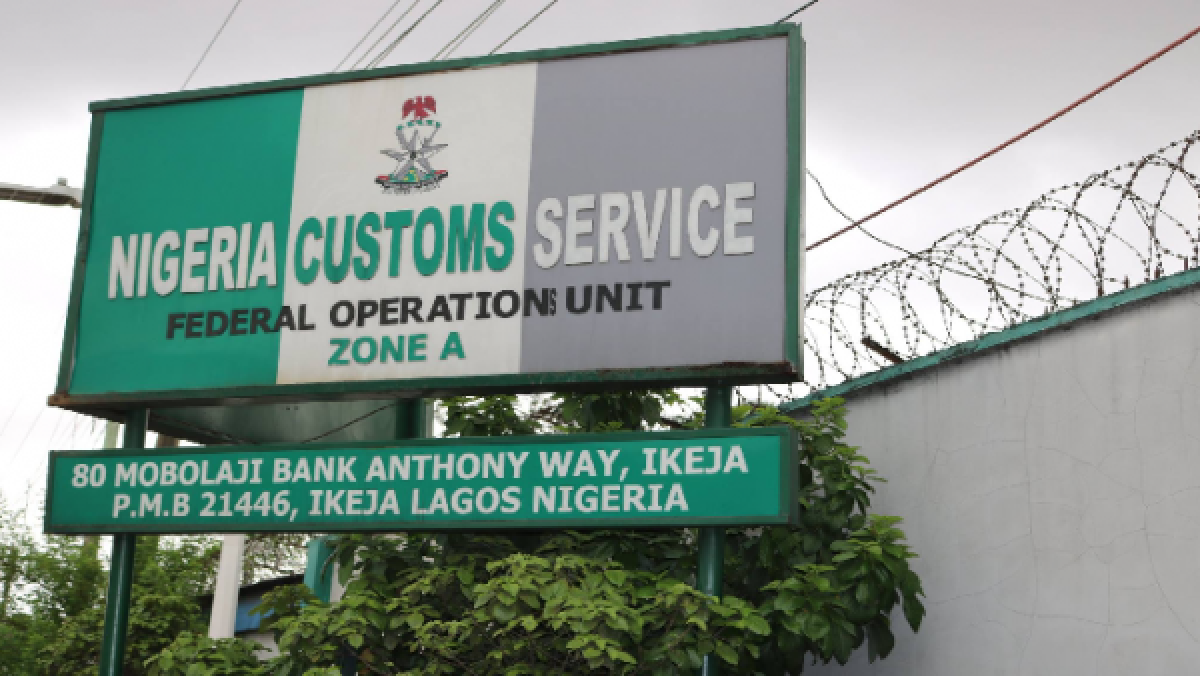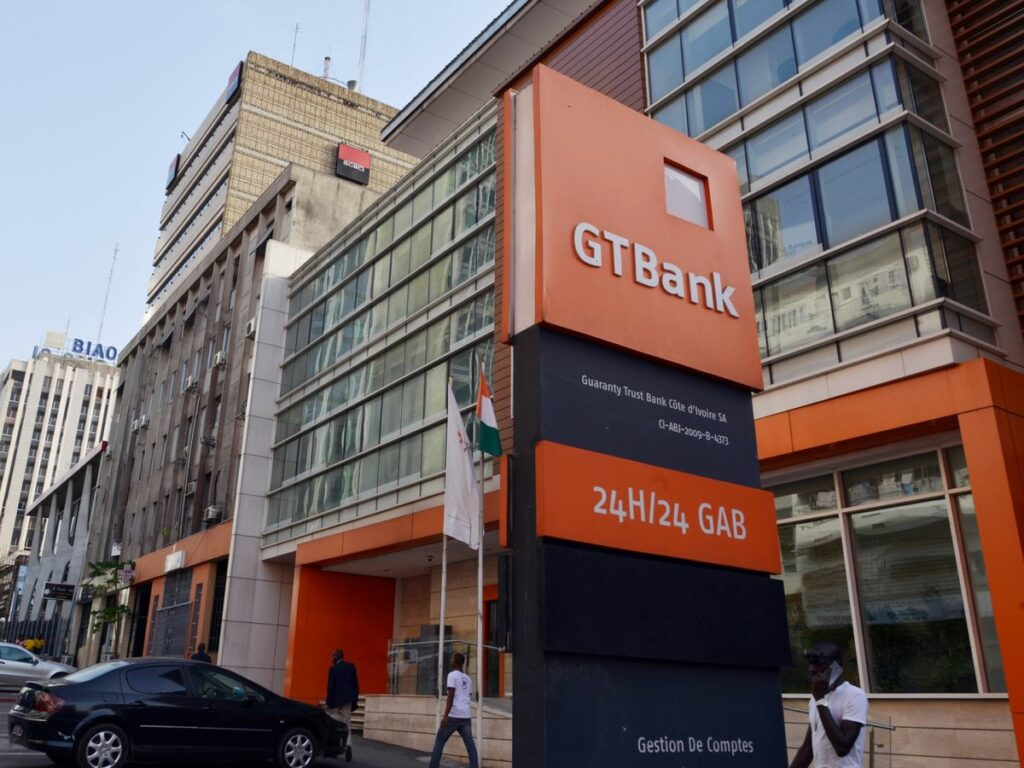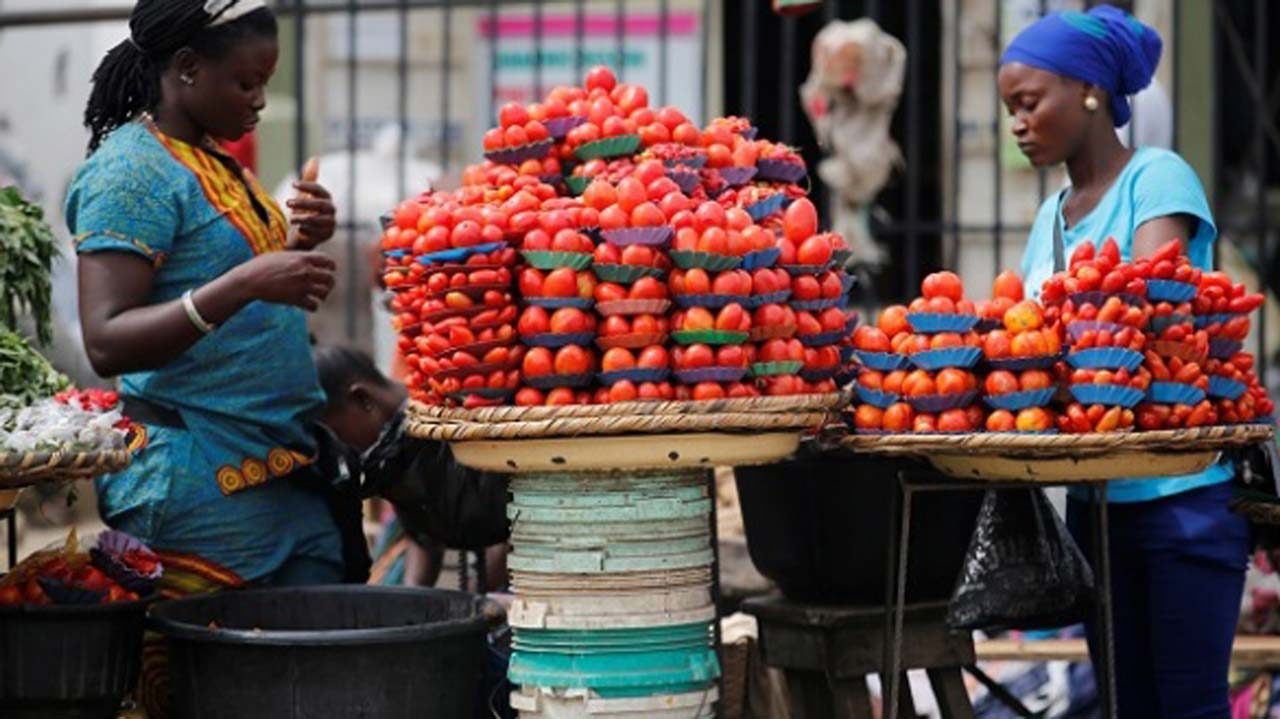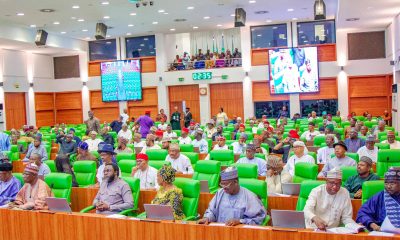Business
Exchange rate for customs duties stays at N1,480/$

The exchange rate for customs duties collection has risen from N1467/$ to N1,480 just below the official market rate of the NAFEM window which stood at N1,482.81 to the USD.
The current exchange rate for the customs duties collection mirrors the prevailing rate on the official window despite the naira’s recent depreciation. The naira had crossed the N1500/$ mark about two weeks ago before gradually settling at its current figure.
Last week, the Naira showed a remarkable recovery, gaining marginal ground against the US dollar. The Naira started the week then at 1468.99/$1 and reached a weekly low of N1,485/$ before settling at N1,481/$ on Friday.
On the other hand, average daily forex turnover ranged from $123 million and $261 million in the week.
Sales of T-bills
Additionally, during the week, the CBN offered a total of N508.98 billion during the Nigerian treasury bill (NTB) auction held on May 22, 2024. The subscription levels significantly surpassed the initial offer, highlighting the continued appetite for fixed-income securities amidst a volatile economic landscape.
Despite the oversubscription reaching N1.5 trillion, only about N638.98 billion was allotted to treasury bill investors. The heightened interest in treasury bills can be attributed to the recent increase in the MPR, making government securities more attractive to yield-seeking investors.
The increase in forex turnover on Thursday suggests heightened trading activity, possibly driven by speculative actions and adjustments to market positions.
Furthermore, during the week also, the CBN continued its MPR hike increasing interest rates by 150 basis points from 24.75% to 26.25%- the third consistent increase since February.
Stakeholders in the business community have criticized the apex bank for its policy initiatives aimed at combating inflation and stabilizing the exchange rate.
Both the Centre for the Promotion of Public Enterprise (CPPE) and the Nigerian Association of Chambers of Commerce, Industry, Mines, and Agriculture (NACCIMA) have expressed discontent with the CBN’s interest rate hikes and frequent adjustments to the customs exchange rate.
The CPPE stated that the increase in interest rates, coupled with fluctuations in customs duties rates, could exacerbate inflation across the country. The Center had previously advised the CBN to adopt a quarterly exchange rate for import duties calculations instead of making regular changes.
Dele Oye, President of NACCIMA, argued that the Nigerian Customs Service (NCS) should collect duties in naira rather than foreign currencies. He emphasized that the government must uphold its commitment to conducting business in Naira instead of indirectly supporting the dollarization of the economy through its policies.
Business
GTBank drags 60 bank chiefs to court over N17bn debt

Guaranty Trust Bank has dragged no fewer than 60 top executives of 13 commercial banks to court as a pending suit between GTBank and Afex Commodity Exchange over N17bn Anchor Borrowers Programme loan lingers.
The 60 executives including the chairmen, chief executive officers, directors, and company secretaries of the 13 banks are facing contempt proceedings for allegedly failing to implement a No-Debit-Order reportedly placed on the accounts of Afex Commodity Exchange with the banks.
In suit no FHC/L/CS/911/2024 involving Guaranty Trust Bank Limited and AFEX Commodities Exchange Limited, the Federal High Court, Lagos division presided by Justice CJ Aneke signed an order for the bank chairmen, MDs, directors, company secretaries and the liquidator of Heritage Bank (Nigeria Deposit Insurance Corporation) to be committed to jail for failing to obey its May 27, 2024 ruling.
A legal notice titled ‘Order to serve notice of disobedience to order of court vide newspaper publication’ published in some national dailies including The PUNCH on Thursday, partly read, “An order granting leave to the Plaintiff Applicant to serve Form 48 (Notice of Consequences of Disobedience to Order of Court) dated 11th June, 2024 and all other forms and processes that may be issued in this contempt proceedings inclusive of Form 49 on the 1st-60st parties cited for contempt.
The matter was adjourned to next Thursday.
Parties cited for contempt include Access Bank, Citibank, Jaiz Bank, Union Bank, Fidelity Bank, First Bank of Nigeria Plc, First City Monument Bank, NDIC (liquidator for Heritage Bank), Polaris Bank, Stanbic IBTC Bank, Standard Chartered Bank, Taj Bank, United Bank for Africa and Zenith Bank alongside its principal officers.
In the court ruling dated May 27, 2024, twenty banks were directed to transfer monies standing to the credit of the respondent into the AFEX’s account with GTB until the N17.81bn is repaid.
The N17.81bn loans comprise N15.77bn; the amount outstanding and unpaid, as of April 17, 2024, and the cost of recovery and incidental expenses in the sum of N2.04bn.
The court also granted an injunction allowing GTB to take over AFEX 16 warehouses located across seven states and sell the commodities stored in them, which it said were procured with the Central Bank of Nigeria Anchor Borrowers’ loan facility.
Earlier in the month, the court had served contempt proceedings against AFEX and some of its principal officers including Ayodele Balogun, Jendayi Fraaser, Justin Topilow, Mobolaji Adeoye and Koonal Ghandi.
According to court papers, AFEX had sourced the Anchor Borrowers Programme Loan facility from GTB to provide finance for smallholder farmers registered under the CBN Anchor Borrower’s programme.
The loan was expected to be repaid from the sale of commodities. However, AFEX failed to uphold its end of the deal even after an extension.
In a statement following the interim court order, AFEX claimed that it had repaid about 90 per cent of the loan facility.
“However, a portion of the loan remains outstanding with the farmers and while we have paid out a portion out of our own purse, we remain in discussions with CBN over the outstanding amounts of the said facility,” the exchange said.
It also said the full value of the loan was utilised to provide input to farmers in three consecutive seasons, starting in 2020.
The exchange added that it had remained consistent with repaying the loans until economic headwinds impacted the operations of the farmers that they had disbursed the money to.
“Over 800,000 hectares of farmland were financed through the course of the programme’s operationalisation; however, significant macro and policy headwinds, including the cash crunch on the back of the Naira redesign policy, severely impacted the productive capacity and market participation of the smallholder farmers in the 2022/2023 season.
“This resulted in less than 40 cent repayment from farmers on their input loan bundles, down from our 90per cent repayment rates in the previous eight years of providing input financing for farmers. The low repayment rate ultimately impacted on our ability to refund the full value of the loan at the end of Q1 2023 and following a 6-month extension period,” AFEX added.
The commodities exchange also stated that the lingering effects of the cash crunch have continued to impact farmers, who sold at below market value to get immediate cash inflows to sustain their families in the period and remain unable to pay back.
Meanwhile, AFEX has called on the Central Bank of Nigeria to activate the collateral guarantee of up to 70 per cent clause included in the Anchor Borrowers programme.
“Evidenced in the attached letters, our engagements with Guaranty Trust Bank Limited, a Participating Financial Institution in the program, as well as the apex bank have seen us highlight these limitations on the part of the defaulting farmers with suggestions being made to the CBN to activate the risk-sharing structure put in place for the program and release funds accordingly to sustain activities and allow for needed recovery efforts in our agriculture sector.
“In light of these engagements, we consider the recent steps by Guaranty Trust Bank Limited to be premature, coming in the midst of open conversations that are being had with all parties to find a path to resolution that does not unduly punish farmers, who have been the biggest hit by macroeconomic conditions that they had no control over,” AFEX concluded.
CBN at the inception of the programme in 2015 said the broad objective was to create economic linkages between smallholder farmers and processors to increase agricultural output and ensure food price stability.
The Anchor Borrowers’ Programme guidelines stipulate that upon harvest, benefiting farmers are to repay their loans with produce (which must cover the loan principal and interest) to an anchor, who pays the cash equivalent to the farmer’s account.
By 2022, at least 4.8 million people had benefitted from the Anchor Borrowers Programme and the CBN in a 2023 statement said it released N1.079tn under the programme, out of which over N500bn is due for repayment.
The programme has since been discontinued by the CBN as it pivots from development financing interventions to its core duty of price and monetary stability.
Business
Nigeria’s inflation rate rises to 33.95% as food prices continue to surge

The National Bureau of Statistics (NBS) says Nigeria’s inflation rate rose to 33.95 percent in May, as prices of food and non-alcoholic beverages continued to surge.
NBS made this known in its consumer price index (CPI) report on Saturday.
In April, the inflation rate stood at 33.69 percent.
“Looking at the movement, the May 2024 headline inflation rate showed an increase of 0.26% points when compared to the April 2024 headline inflation rate,” NBS said.
“On a year-on-year basis, the headline inflation rate was 11.54% points higher compared to the rate recorded in May 2023, which was 22.41%.”
The report also shows that on a month-on-month basis, the headline inflation rate in May 2024 was
2.14 percent, which was 0.15 percent lower than the 2.29 percent rate reported in April 2024.
This means that in the month of May, the rate of increase in the average price level is less than the rate of increase in the average price level in April 2024.
An analysis of the top five headline inflation drivers showed food and non-alcoholic beverages led with 17.59 percent.
Following closely are housing, water, electricity, gas and other fuels with 5.68 percent.
Others are clothing and footwear at 2.60 percent, transport at 2.21 percent, with furnishings, household equipment and maintenance completing the list at 1.71 percent.
NBS said on a year-on-year basis, the urban inflation rate rose to 36.34 percent in May, “which was 12.61% points higher compared to the 23.74% recorded in May 2023”.
“On a month-on-month basis, the Urban inflation rate was 2.35% in May 2024, this was 0.32% points lower compared to April 2024 (2.67%),” NBS said.
“The Rural inflation rate in May 2024 was 31.82% on a year-on-year basis; this was 10.63% higher compared to the 21.19% recorded in May 2023.”
‘YAM, SEMOVITA, GARRI DRIVE FOOD INFLATION RATE UP TO 44.66%’
NBS said food inflation rose to 40.66 percent in May, compared to the 24.82 percent reported in the same month last year — indicating an increase of 15.84 percent points.
The bureau said semovita, oatflake, yam flour prepackage, garri, bean, etc (which are under bread
and cereals class), Irish potatoes, yam, water yam, etc (under potatoes, yam and other tubers class), contributed to the year-on-year increase in the food inflation rate.
Other contributors are palm oil, vegetable oil, etc (under oil and fat), stockfish, mudfish, crayfish,
etc (under fish class), beef head, chicken-live, pork head, and bush meat (under meat class).
NBS also said the month-on-month food inflation rate in May was 2.28 percent, showing a decrease of 0.22 percent compared to the 2.50 percent recorded in April.
Business
Local airlines will soon start flying directly to South America, says Keyamo

Festus Keyamo, minister of aviation, says the country is looking to commence direct flight operations to South America.
The minister made this known on Saturday during an interview with the statehouse media.
On March 20, Air Peace, Nigeria’s flag carrier, commenced its Lagos-London flight services.
Keyamo said more indigenous airlines would soon commence flight operations to other routes.
“We are looking at the American route, we are looking at the South American route,” he said.
“They are not even flying the South American route at all but something is in the offering for us to start that route now so as to help the Nigerian flying public to bring down their prices.”
He said this is one aspect of helping local airline to enforce Bilateral aviation safety agreement (BASA).
According to the minister, this will also ensure “you tell the countries that this is our flag carriers, present them as your flag carriers and so they respect them as Nigeria’s representative not as just private businesses in Nigeria”.
Speaking further, Keyamo said in the 2024 budget, there is provision for a master plan for the ministry.
The master plan, he said, is not to redesign the terminal buildings at airports but to modify the electropolis.
Keyamo said it would be done in all airports, starting with the five international airports.
-

 Entertainment6 days ago
Entertainment6 days agoAyra Starr makes history after debuting on Billboard 200
-

 Politics1 week ago
Politics1 week agoYou can’t judge Tinubu just after one year in office, Doyin Okupe tells Nigerians
-

 Education4 days ago
Education4 days agoNigerian lady, Chinwe Splendor claims university demanded certificate return after her sex-for-grades remark on podcast
-

 News6 days ago
News6 days agoForeign affairs ministry’s permanent secretary, Yusuf Tuggar accused of sexual harassment by married subordinate
-

 Health2 days ago
Health2 days agoWhy the average man will die before his wife
-

 Politics1 week ago
Politics1 week ago35 reps propose six-year single term for president, zonal rotation
-

 Crime1 week ago
Crime1 week agoLady stabs lover to death in Imo over failure to get share of fraud proceeds
-

 Crime1 week ago
Crime1 week agoImmigration officer gets 7-year jail term for passport fraud



























